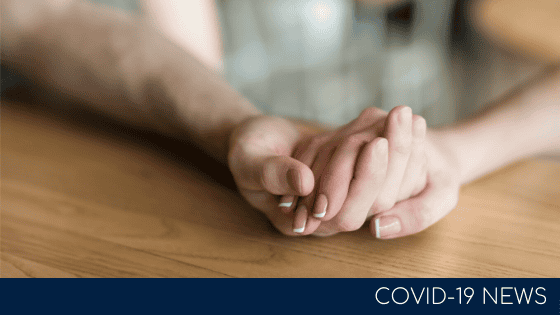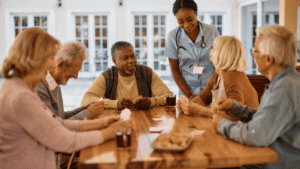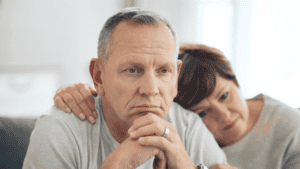Interview by Cicily Maton, Retired Sr. Financial Planner and Michelle Maton, CFP®, CeFT®
Cicily Maton has retired, however, Michelle Maton CFP®, EA, CeFT® Sr. Financial Planner and Andy Baxley CFP®, CIMA®, CeFT® Sr. Financial Planner carry on her legacy in the Chicago office.
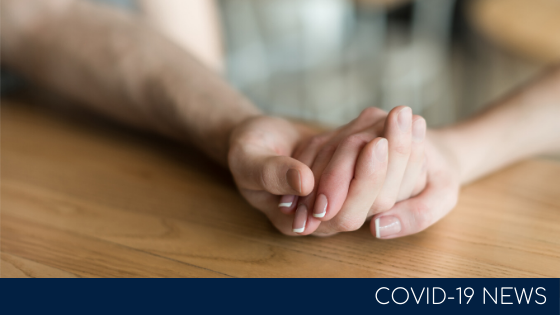
No one knows how long it will take for the COVID-19 threat to abate. What we do know is that if we are meticulous in following the CDC safety guidelines, we will all get through this together.
As Certified Financial Transitionists, Cicily Maton CFP and Michelle Maton CFP, recently initiated a conversation about human behavior and the pandemic with Dr. William “Marty” Martin, TPC’s staff Psychologist who is currently consulting with Chicago’s Red Cross Mental Health Disaster Team.
What follows is an excerpt from their questions to him and his responses. It is our pleasure to share them with our clients. Please feel free to contact Cicily or Michelle should you wish to talk about any aspect of this article. Thank you for being a valued client. Stay safe and connected.
Cicily Maton: From a global perspective, how much actual risk is there for each of us as individuals?
Dr. Wm. Marty Martin: There is no precise estimate about what proportion of the global population will become infected with COVID-19. Many individuals will not even know that they have been infected. How so? They are asymptomatic. But they can infect others even if they experience no symptoms.
It is becoming clear that if you have underlying chronic medical conditions, then you face a higher risk of acquiring COVID-19, become symptomatic, being admitted to the hospital, being transferred to the ICU, and even dying. However, do not “freak out” if you have a single chronic medical condition which is well managed, because each individual is unique.
Based upon current statistical models, the mortality rate from COVID-19 is estimated to be between 1% and 3% of the total number of people infected. This percentage could change. And this risk is a global estimate which will vary country by country and even within any given country. The ultimate risk of dying will be, to a greater extent, determined for each of us by how methodically we follow the social distancing and disease prevention guidelines provided by the Centers for Disease Control (CDC).
Michelle Maton: What is the likely impact on our emotional well-being?
Dr. Wm. Marty Martin: The likely impact will differ depending upon the individual and his/her particular circumstances. However, an overwhelming majority of individuals will rightfully be worried or even anxious. Some folks who have lost money in their retirement accounts, lost their job, lost income (or even lost loved ones to COVID-19) will naturally experience some depression.
Do not judge how others deal with COVID-19 and its ramifications, ranging from quarantining difficulties to concerns about becoming infected. If you’re experiencing no more than three of the five symptoms below, then you need not be too concerned unless you begin to experience a change in your social, academic, occupational, physical, mental, emotional, and relationship functioning.
- Fear and worry about your own health and the health of your loved ones
- Changes in sleep or eating patterns
- Difficulty sleeping or concentrating
- Worsening of mild aches and pains
- Increased use of alcohol, tobacco and other drugs
On the other hand, be careful not to dismiss indicators that something is seriously wrong. This could range from suicidal thoughts/feelings to blood in your urine/stool. Denial is a way for us to cope with things that are distressing and even overwhelming. Denial is not a long-term strategy. Denial is like a blanket which covers up the underlying problem, but the problem does not disappear. And remember to “err on the side of caution” and reach out to your physician, nurse practitioners, or other healthcare professionals if you have a concern. As they say, it is better to be safe than sorry. This is the heart of the precautionary principle.
The key is to listen to your body and respond to it if you experience too much distress or feel distress too frequently. And pay attention to loved ones who may be concerned about you or may be worried about you.
It is important that you take better care of your emotional, psychological, physical, and relationship health than ever before. This is not only to get more out of life, but also to give more, and boost your immune system. A healthy immune system may not prevent you from contracting COVID-19, but it certainly helps.
Cicily Maton: Self-isolation can have its own serious health consequences. What are some suggestions for overcoming the feelings of loneliness and cabin fever that we all may be facing in the days ahead?
Dr. Wm Marty Martin: There is growing scientific evidence about the health-eroding effects of loneliness. In fact, loneliness is an independent risk factor for premature mortality. Why? We are social beings.
Some of you may have heard of the term “failure to thrive.” This occurs when infants are cared for only with respect to meeting their physiological needs, but not their emotional, social, intellectual and psychological needs. The infants fail to develop. This also happens with adults as scientists are discovering.
Technology has helped decrease loneliness, but it can make some folks even feel lonelier. The number of life connections you have is not as important to your physical, emotional and mental health as the quality of your connections. You may have 3,000 followers on LinkedIn but still feel lonely.
These three tips may help:
- Respond to others when they reach out to you. You don’t have to be an extrovert, but you do have to respond.
- Identify activities that you enjoy that can be done with others.
- Consider helping others in informal or formal ways.
Cabin fever is a bit different than loneliness. You can be inside most of the winter because the weather is bad, and you don’t really engage in winter outdoor activities. Try walking outside just to experience a different environment and get your body moving especially if it feels as if “the walls are closing in on you.” Be sure to take into consideration current social distancing guidelines and wear a face mask to reduce the risk of contracting novel coronavirus.
For some people, staying indoors is not their biggest challenge; it’s the lack of light which saps their energy. Some suspect they may have Seasonal Affective Disorder (SAD) and should check with their physician if they believe they have the symptoms. The odds are most of us do not have SAD, but we fail to realize the power of light to increase our energy and lift our mood.
Outdoor light on a clear day is about 100,000 lux in comparison to an indoor lux of 150-200 for homes and offices. Go out and get some natural sunlight. Even if it’s an overcast day, you’re still benefiting from 1,075 lux which is a lot more than 150-200 lux.
Michelle Maton: While we are all isolating in place, other than avoiding too much of the hyperbolic news media, what can we do to reduce our stress levels and remain optimistic?
Dr. Wm Marty Martin: Beyond our physiological/survival and safety/security needs are social needs. We are all social beings, although some of us are more social than others. As humans, we need each other. We need each other to fulfill our physical needs, emotional needs and connection needs. If there is nobody else to turn to, then we feel the weight of having to “do it all” while at the same time coming to the distressing realization that “we’re all alone” in this fight or in meeting the demands of the day.
During this time when physical contact is a risk factor, keep your distance—but stay connected and stay available for others.
Cicily Maton: Many people are quarantined with their spouse, loved ones or entire families for what may be an extended period. Any survival tips?
Dr. Wm Marty Martin: Robert Frost, the famous poet, wrote a poem titled “Mending Wall.” This poem is controversial because it explores the tension that exists between connection and separation from others. In this poem, the most quoted line is “Good Fences Make Good Neighbors.”
This line rings true when many of us now are self-quarantining, isolating ourselves, or obeying “stay at home” orders. It is true that we’re social beings, but it’s also true that we need our own space. Try these five tips for being neighborly with those that you’re living with—not for a couple of hours, or even a holiday but for weeks and perhaps months.
- Stage the space in your apartment, condo or home such that each person has a space that “they can call their own.” And try not to encroach upon the space of others unless invited.
- Respect the space of others by not jumping over the fence or trying to tear down the fence or shouting across the fence (literally or figuratively).
- Recognize that some people need more “Me Time” than others. Accept the difference but don’t judge the difference.
- Learn how to entertain yourself and play by yourself.
- Get some perspective when others are pushing you away for a moment because they need some private time. Don’t personalize.
Remember, noise (and not just one’s physical presence) can also invade the space of others. Invest in ear plugs, if necessary.
Michelle Maton: How can people, particularly seniors, reduce the risk of depression as it relates to the forced isolation that is now necessary throughout the country?
Dr. Wm Marty Martin: Loneliness is not the same as being alone. My grandmother used to say, “I may be by myself but I ain’t lonely.” Why? She really could not be bothered with a bunch of people (including me) at times. The psychological definition of loneliness is as follows: the gap between desired and actual social relationships.
There is scientific evidence that those who experience loneliness are more likely to be depressed. Depression is not solely caused by loneliness. Other factors may include rumination and chronic diseases such as heart failure or even diabetes. When you ruminate, you’re not simply worried about something. Worry tends to come and go. Rumination tends to stick around. When you ruminate, the thoughts you may be feeling are nearly continuous. And the thoughts are overwhelmingly negative not neutral and not positive.
Many people are right to be worried about their retirement/investment portfolios and COVID-19, but to compulsively and continuously engage in negative thoughts is rumination. Here are a few tips to tone down or shut down ruminating thoughts:
- Seek contrary evidence
- Imagine a STOP sign
- Be mindful while doing something physical
To seek contrary evidence is to purposefully look for an opposing view of how you’ve framed the situation. For example, rather than focus only on the 1-3% mortality rate for COVID-19, focus on the 97-99% survival rate or compare COVID-19 to an infectious disease with a higher mortality rate. In short, think in color not monochrome.
Picture a STOP sign when the ruminating thought “pops” up. Then, as quickly as possible, imagine a STOP sign, and say to yourself, “STOP.” Psychologists refer to this as thought stopping. If you struggle to imagine a STOP sign, grab an image from the internet. Take a photo of one. Or draw one and put it on a 3 x 5 card or your smartphone, and pull it out when you catch yourself ruminating.
Be mindful while doing something physical or cognitively demanding. When thinking about something negative or worrying about something, try counting backwards from 100 to 0 by 2’s or even 3’s. For some of you, 2’s is piece of cake. For most of us, counting backwards from 100 to 0 by 3’s demands your attention, demands your focus, and demands your concentration so much that there is no room for worrying or ruminating thoughts.
Cicily Maton: What opportunities do you see for markets, for investors, and for civilization in general?
Dr. Wm Marty Martin: For civilization, the verdict is out because thus far COVID-19 has ravaged high income countries such as Singapore and Spain not middle income and low-income countries. A beacon of hope is that Germany is accepting COVID-19 patients from Italy, but both are high income countries. Will high-income countries come to the aid of middle- and low-income countries or say, “Sorry…we’ll just send our thoughts and prayers. God bless you”? On a brighter note, my sense is that more and more individuals are realizing but not quite appreciating how we all are depending upon each other. In this case, we all have the power through our behavior to protect other human beings from catching a deadly virus.
This common threat should serve as an opportunity to bind us together and fully leverage all of our unique gifts and talents not just to “flatten the curve” but to protect our planet (this is the only planet we can inhabit thus far), protect other species (these emerging diseases hop from one species to another), and protect and respect each other.
Be kind. Be careful. Be generous. Be safe.
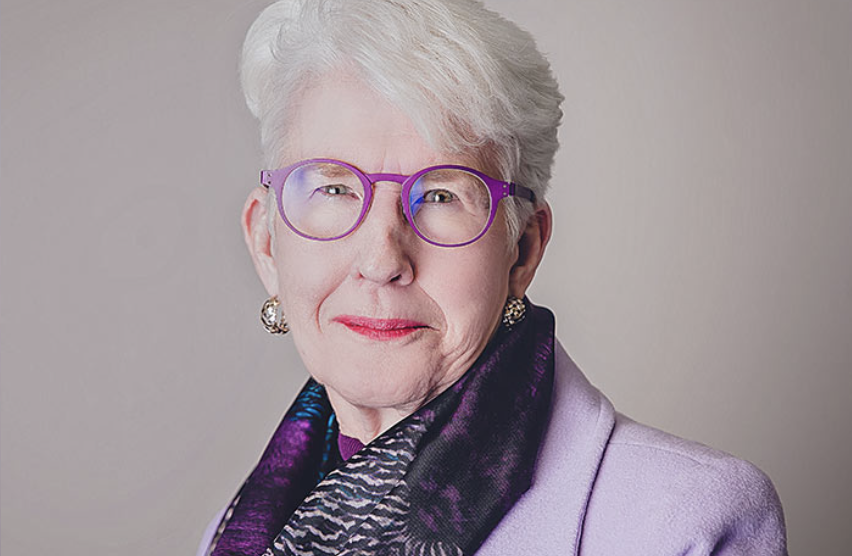
Cicily Maton, CFP®, CeFT®, is a Sr. Financial Planner in the Chicago office of The Planning Center, a fee-only financial planning and wealth management firm. Email her at cicily@theplanningcenter.com.
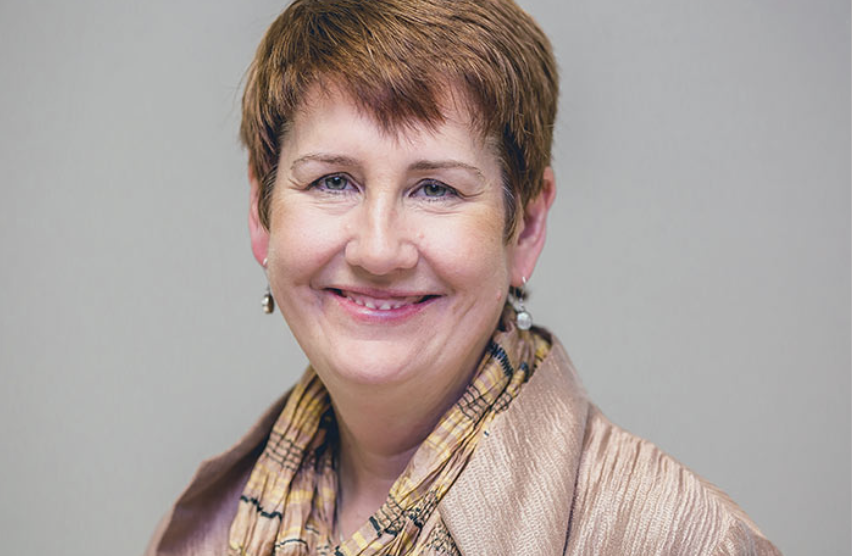
Michelle Maton, CFP®, CeFT®, is a Sr. Financial Planner in the Chicago office of The Planning Center, a fee-only financial planning and wealth management firm. Email her at michelle@theplanningcenter.com.
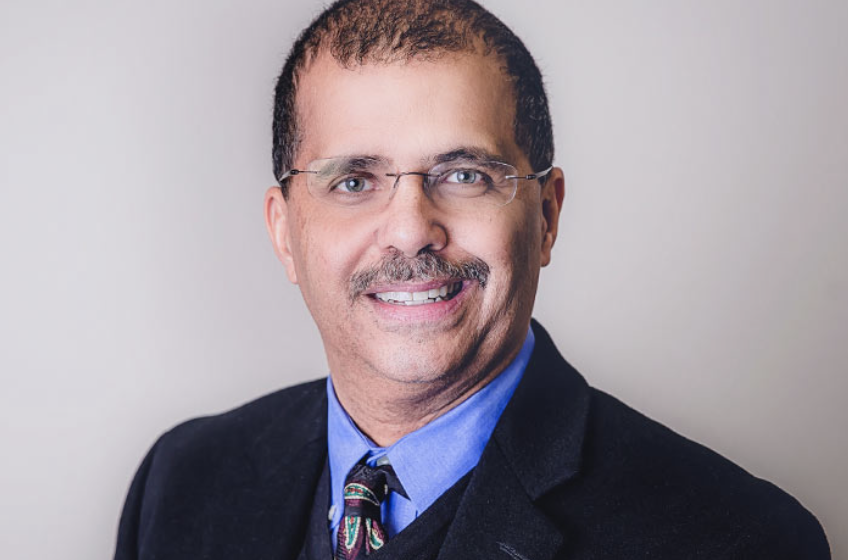
Dr. Wm. “Marty” Marten, PsyD, is a Psychologist in the Chicago office of The Planning Center, a fee-only financial planning and wealth management firm. Email him at info@theplanningcenter.com.


